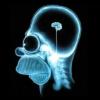What kind of drugs wipe out bad memories?

8 replies to this topic
#1
Posted 26 January 2013 - 04:31 PM
What kind of drugs wipe out bad memories?
#2
Posted 26 January 2013 - 04:47 PM
I'm pretty sure that's pharmacologically impossible. Memories, sure. Specifically bad ones not so much.
Maybe you would benefit from CBT? Drugs can only get you so far (which is not very). They are what I like to call the shotgun approach. A mental state arises from the delicately balanced ratios of variously activated and interdependent neurotransmitter systems. Pushing one of these in a certain direction can never fix something as nuanced and complicated as a psychological problem. For this we must use a top down, hollistic approach.
Maybe you would benefit from CBT? Drugs can only get you so far (which is not very). They are what I like to call the shotgun approach. A mental state arises from the delicately balanced ratios of variously activated and interdependent neurotransmitter systems. Pushing one of these in a certain direction can never fix something as nuanced and complicated as a psychological problem. For this we must use a top down, hollistic approach.
sponsored ad
#3
Posted 26 January 2013 - 04:48 PM
I hear that propranolol can help with reducing the emotional content of bad memories. Not sure if it helps cause one to forget, but it is used extensively for PTSD.
#5
Posted 26 January 2013 - 09:05 PM
Scopalamine is the obvious choice... though it'll knock out ALL memory, not just the bad ones(!) (Watch the Vice documentary on it if you're looking for some dark entertainment.)
#6
Posted 29 January 2013 - 10:52 AM
Scopolamine and other strong anticholinergics also make you retarded, restless, anxious, and cause serious attention problems ... for few weeks after (ab)use or even longer if abused for longer. Currently there is no drug to erase specific memories and I doubt there ever will be one since drugs are usually non-specific.
As mentioned, propranolol is used for treating PTSD. How it works: you don't have to use it all the time (like when using it for treating high BP), you use it once a week or so under supervision and then you activate those bad memories purposely. When you activate memories you can affect consolidation and this is what propranolol does. After few seances you will still remember those memories, but the emotional response will be much lower - it a kind of Pavlovian conditioning. Propranolol blocks symphatetic nervous system reponse.
Tetris may also be used for treating bad memories or at least preventing flashback if you play it right after traumatic event, however there are only two studies (by same authors) to date:
http://www.plosone.o...al.pone.0004153
http://www.plosone.o...al.pone.0013706
It also affects consolidation and lowers the amount of flashbacks, but I don't know if it would be useful to use it after those memories are already formed. But as I said: consolidation can be affected after reactivation.
I also think that EMDR works the same/similar way: http://en.wikipedia....nd_reprocessing
Anyway, until better treatment are available, I'd recommend you propranolol therapy under supervision, EMDR, CBT and mindfulness meditation (I suppose it works similar to propranolol but you need longer time for similar effects but it will positively affect other domains of your life).
As mentioned, propranolol is used for treating PTSD. How it works: you don't have to use it all the time (like when using it for treating high BP), you use it once a week or so under supervision and then you activate those bad memories purposely. When you activate memories you can affect consolidation and this is what propranolol does. After few seances you will still remember those memories, but the emotional response will be much lower - it a kind of Pavlovian conditioning. Propranolol blocks symphatetic nervous system reponse.
Tetris may also be used for treating bad memories or at least preventing flashback if you play it right after traumatic event, however there are only two studies (by same authors) to date:
http://www.plosone.o...al.pone.0004153
http://www.plosone.o...al.pone.0013706
It also affects consolidation and lowers the amount of flashbacks, but I don't know if it would be useful to use it after those memories are already formed. But as I said: consolidation can be affected after reactivation.
I also think that EMDR works the same/similar way: http://en.wikipedia....nd_reprocessing
Anyway, until better treatment are available, I'd recommend you propranolol therapy under supervision, EMDR, CBT and mindfulness meditation (I suppose it works similar to propranolol but you need longer time for similar effects but it will positively affect other domains of your life).
#7
Posted 29 January 2013 - 11:05 AM
I dont think that deleting bad memories is a good idea. I know of some drugs that can be taken shortly after a bad event happened so as long as the formation into long term memory didnt happen. I forgot the name though.
I had a long time to think about my bad memories, and at first I also tried to delete them. But no technique worked, and what finally made me find peace was something else... (no not drugs lol).
You have to find a way to give those experiences a meaning that allows you to live on, instead of a meaning that burns you inside.
Also, its not only the meaning, but the context you assign to those memories. For example, a very bad experience can mean everything to you. After the event, everything that you can associate with it, you will, and in the process you will feel the pain again, unless you learn to differenciate so your brain won't trigger that stuff all over again. And those 2 things are kinda the key to living a normal, peaceful life despite having bad memories.
I'd also look into CBT, because a lot of thinking strategies that cause problems (which you learn to correct with CBT) are extremely problematic once a traumatic event happens - because those strategies now amplify that event, at the time it happend, and as time goes on.
I had a long time to think about my bad memories, and at first I also tried to delete them. But no technique worked, and what finally made me find peace was something else... (no not drugs lol).
You have to find a way to give those experiences a meaning that allows you to live on, instead of a meaning that burns you inside.
Also, its not only the meaning, but the context you assign to those memories. For example, a very bad experience can mean everything to you. After the event, everything that you can associate with it, you will, and in the process you will feel the pain again, unless you learn to differenciate so your brain won't trigger that stuff all over again. And those 2 things are kinda the key to living a normal, peaceful life despite having bad memories.
I'd also look into CBT, because a lot of thinking strategies that cause problems (which you learn to correct with CBT) are extremely problematic once a traumatic event happens - because those strategies now amplify that event, at the time it happend, and as time goes on.
#8
Posted 29 January 2013 - 11:00 PM
Son of a ....pharmacist! I keep backspacing at the end of my messages, and have to rewrite them accordingly. Attempt 2:
Metyrapone looks like an interesting substance. I see it lowers cortisol levels. From the little I know, or think to know, of cortisol; wouldn't lowered cortisol levels result in greater working memory, hence -> nootropic effect? I could be severely wrong here, don't know much about the subject. All I've read for now is the Wikipedia article "Chronic Stress", from which I see symptoms including loss of concentration and worsened memory, plus anxiety. If those were to be eliminated, certainly it would have nootropic effect in such cases? Perhaps someone more knowledgeable in neuropharmacology could provide insight on the theory? Also *brain farts a little*.... Why Zebra's Don't Get Ulcers? Perhaps this subtance could be used in treatment/management of a burnout/depression?
On-topic: Amnesia Haze, which I do not recommend. Other than that, mindfulness meditation reduces the impact of such recurrent memories, allthough it does require disciplined maintenance to reach desired effect, and can take quite a while before becoming effective.
Metyrapone looks like an interesting substance. I see it lowers cortisol levels. From the little I know, or think to know, of cortisol; wouldn't lowered cortisol levels result in greater working memory, hence -> nootropic effect? I could be severely wrong here, don't know much about the subject. All I've read for now is the Wikipedia article "Chronic Stress", from which I see symptoms including loss of concentration and worsened memory, plus anxiety. If those were to be eliminated, certainly it would have nootropic effect in such cases? Perhaps someone more knowledgeable in neuropharmacology could provide insight on the theory? Also *brain farts a little*.... Why Zebra's Don't Get Ulcers? Perhaps this subtance could be used in treatment/management of a burnout/depression?
On-topic: Amnesia Haze, which I do not recommend. Other than that, mindfulness meditation reduces the impact of such recurrent memories, allthough it does require disciplined maintenance to reach desired effect, and can take quite a while before becoming effective.
sponsored ad
#9
Posted 05 February 2013 - 12:16 PM
What kind of drugs wipe out bad memories?
Was she really that ugly?
Alcohol, and lots of it?
I'm just kidding, and not really providing any value.
Cognitive Behavioural Therapy or CBT is probably the best way to 'resolve' emotional issues. Because it's probably not the memory but actually your recollection of it, the meaning you are giving it, neuro-associations you have created etc. This can all be redone and changed.
2 user(s) are reading this topic
0 members, 2 guests, 0 anonymous users















































